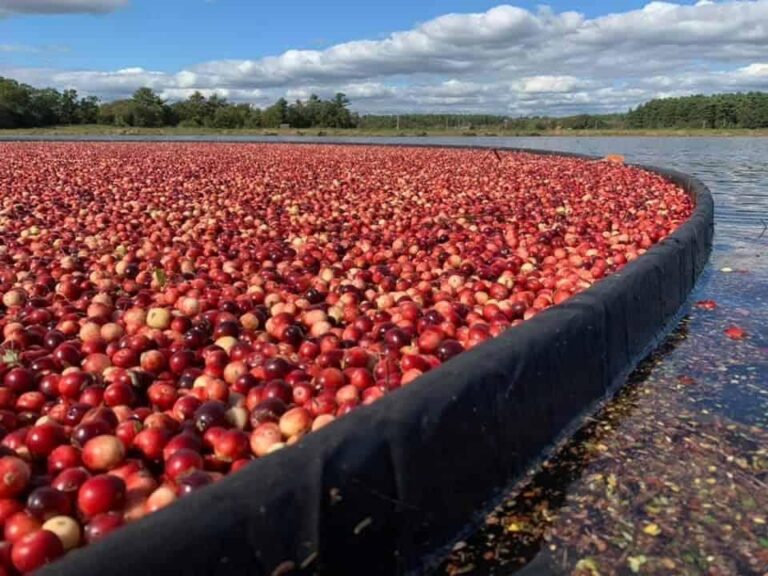Massachusetts agriculture stands at a critical crossroads, balancing a rich tradition with the pressures of modern economic, environmental, and social challenges. As the state navigates evolving market demands, climate change impacts, and shifts in consumer preferences, farmers and industry stakeholders are adapting to sustain local food production and rural economies. This article explores the current trends shaping Massachusetts agriculture-from innovative sustainable practices to the obstacles posed by labor shortages and regulatory changes-highlighting how the sector strives to remain resilient in an ever-changing landscape.
Table of Contents
- Emerging Crop Innovations Transforming Massachusetts Farms
- Climate Impact and Its Toll on Local Agricultural Productivity
- Sustainable Practices Gaining Traction Among Massachusetts Growers
- Policy Shifts and Support Systems to Strengthen Farm Resilience
- In Conclusion
Emerging Crop Innovations Transforming Massachusetts Farms
Massachusetts farms are witnessing a surge in innovative crop technologies aimed at boosting yield and sustainability amid challenging climate conditions. Advanced seed genetics, including climate-resilient varieties, are gaining traction, enabling growers to mitigate risks associated with unpredictable weather patterns. Precision agriculture tools, such as drone-enabled soil monitoring and AI-driven crop analytics, are being adopted to optimize resource use and minimize environmental impact. Farmers are increasingly integrating vertical farming and controlled-habitat agriculture methods, which enhance productivity per square foot while reducing water and pesticide consumption.
Key innovations reshaping the landscape include:
- Advancement of drought-tolerant and pest-resistant crop cultivars tailored for temperate New England climates
- Deployment of smart irrigation systems to improve water efficiency and reduce waste
- Use of biofertilizers and biopesticides promoting organic farming practices with lower chemical footprints
- Incorporation of blockchain for improved supply chain clarity and farm-to-table traceability
These advancements not only elevate production but also align with Massachusetts’ broader environmental goals, positioning local agriculture as a model for resilience in an era of unprecedented global challenges.
Climate Impact and Its Toll on Local Agricultural Productivity
Shifts in weather patterns have begun to challenge Massachusetts’ agricultural backbone, disrupting planting schedules and harvesting windows. Unpredictable rainfall-ranging from intense downpours to prolonged dry spells-exerts pressure on soil health and crop vitality. Rising temperatures have notably accelerated pest and pathogen life cycles, increasing the frequency of infestations that threaten staple crops such as apples, cranberries, and vegetables.
Farmers are responding to these evolving threats with adaptive strategies that include:
- Implementing drought-resistant crop varieties to mitigate water stress.
- Adjusting planting dates to align with shifting climate signals.
- Integrating advanced irrigation techniques for efficient water use.
- Enhancing soil conservation practices to reduce erosion and improve moisture retention.
Despite these efforts, the increased variability in weather continues to pose significant risks for yield consistency and economic stability within the state’s farming communities.
Sustainable Practices Gaining Traction Among Massachusetts Growers
Massachusetts growers are increasingly adopting sustainable agriculture methods as a response to evolving consumer preferences and environmental pressures. Innovative techniques such as cover cropping,organic pest management,and water conservation are becoming standard practices among farmers aiming to enhance soil health and reduce chemical inputs.This shift not only supports biodiversity but also improves resilience against climate variability,positioning local agriculture to thrive amidst challenging weather patterns.
Key sustainable strategies making inroads include:
- Implementing crop rotation schedules to maintain soil fertility.
- Utilizing integrated pest management to minimize pesticide use.
- Expanding the use of renewable energy sources like solar-powered irrigation.
- Adopting no-till farming to prevent erosion and increase carbon sequestration.
These initiatives reflect a broader commitment within the Massachusetts farming community to balance productivity with ecological stewardship. State programs and local cooperatives are playing a pivotal role by offering technical assistance and incentives, encouraging more growers to transition toward sustainable models that promise long-term economic and environmental benefits.
Policy Shifts and Support Systems to Strengthen Farm Resilience
Massachusetts has recently realigned its agricultural policies to bolster farm resilience amid escalating climate pressures and market fluctuations. New initiatives prioritize sustainable practices, incentivize crop diversification, and strengthen local food systems. Expanded financial support through grants and low-interest loans aims to reduce economic vulnerabilities for small and mid-sized farms. Additionally, legislation now encourages collaboration between farmers, researchers, and policymakers to implement adaptive strategies that mitigate risks such as droughts, pests, and supply chain disruptions.
Support systems are evolving beyond traditional subsidies,incorporating:
- Community-based programs that foster knowledge exchange and cooperative resource management
- Technological adoption funding targeting precision agriculture and climate-smart tools
- Market access enhancements including expanded farm-to-consumer networks and local branding initiatives
Collectively,these shifts reflect a strategic commitment to making Massachusetts agriculture robust against future uncertainties,ensuring long-term viability while sustaining the region’s rich farming heritage.
In Conclusion
As Massachusetts agriculture navigates both promising opportunities and significant hurdles, the resilience and innovation of its farming community remain at the forefront. Addressing challenges such as climate change, land availability, and evolving market demands will be critical to sustaining the sector’s growth and contribution to the state’s economy. Continued support and adaptive strategies will shape the future of agriculture in the Bay State, ensuring it remains a vital part of Massachusetts’ heritage and livelihood.

